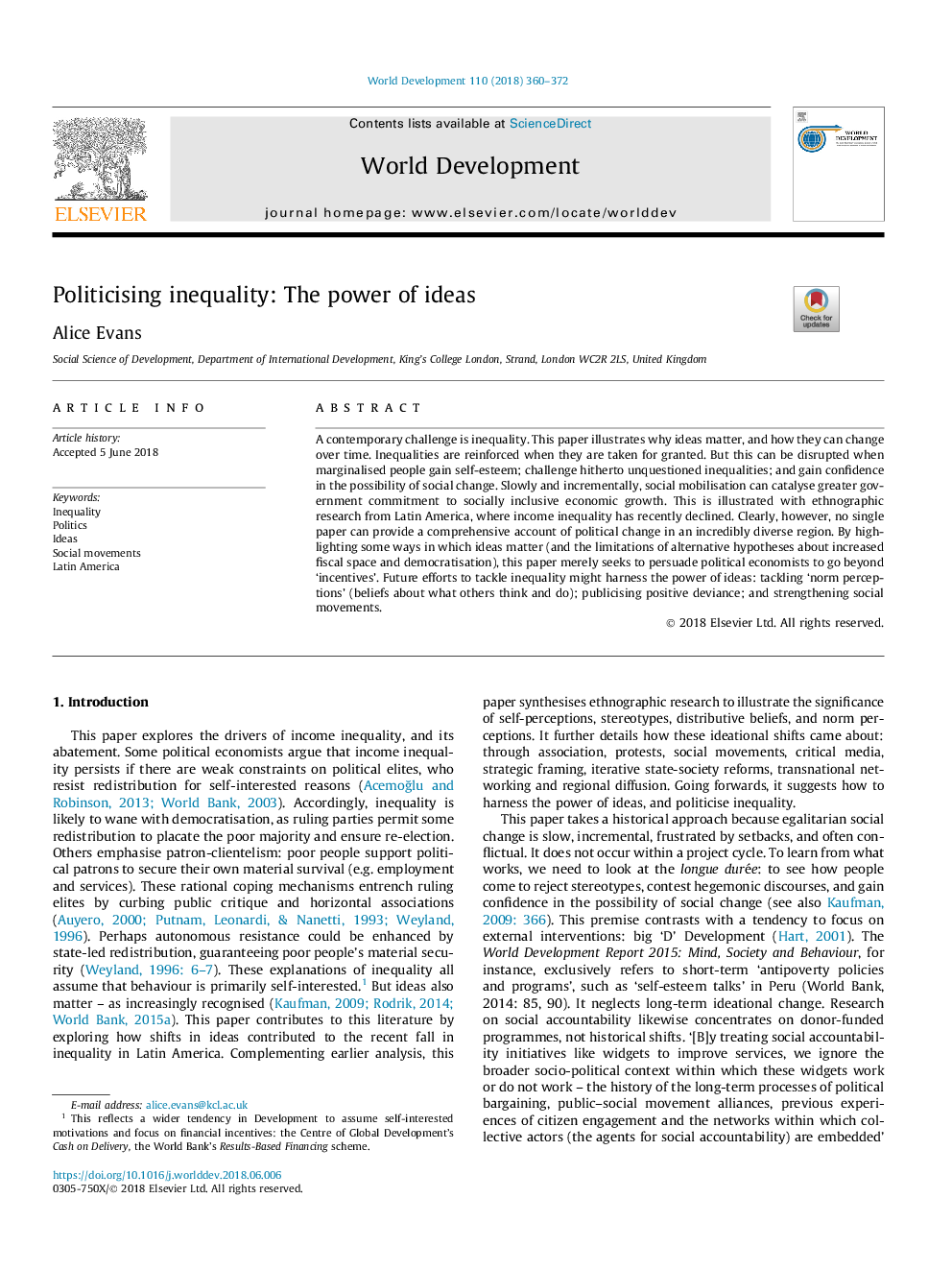| Article ID | Journal | Published Year | Pages | File Type |
|---|---|---|---|---|
| 7391452 | World Development | 2018 | 13 Pages |
Abstract
A contemporary challenge is inequality. This paper illustrates why ideas matter, and how they can change over time. Inequalities are reinforced when they are taken for granted. But this can be disrupted when marginalised people gain self-esteem; challenge hitherto unquestioned inequalities; and gain confidence in the possibility of social change. Slowly and incrementally, social mobilisation can catalyse greater government commitment to socially inclusive economic growth. This is illustrated with ethnographic research from Latin America, where income inequality has recently declined. Clearly, however, no single paper can provide a comprehensive account of political change in an incredibly diverse region. By highlighting some ways in which ideas matter (and the limitations of alternative hypotheses about increased fiscal space and democratisation), this paper merely seeks to persuade political economists to go beyond 'incentives'. Future efforts to tackle inequality might harness the power of ideas: tackling 'norm perceptions' (beliefs about what others think and do); publicising positive deviance; and strengthening social movements.
Related Topics
Social Sciences and Humanities
Economics, Econometrics and Finance
Economics and Econometrics
Authors
Alice Evans,
